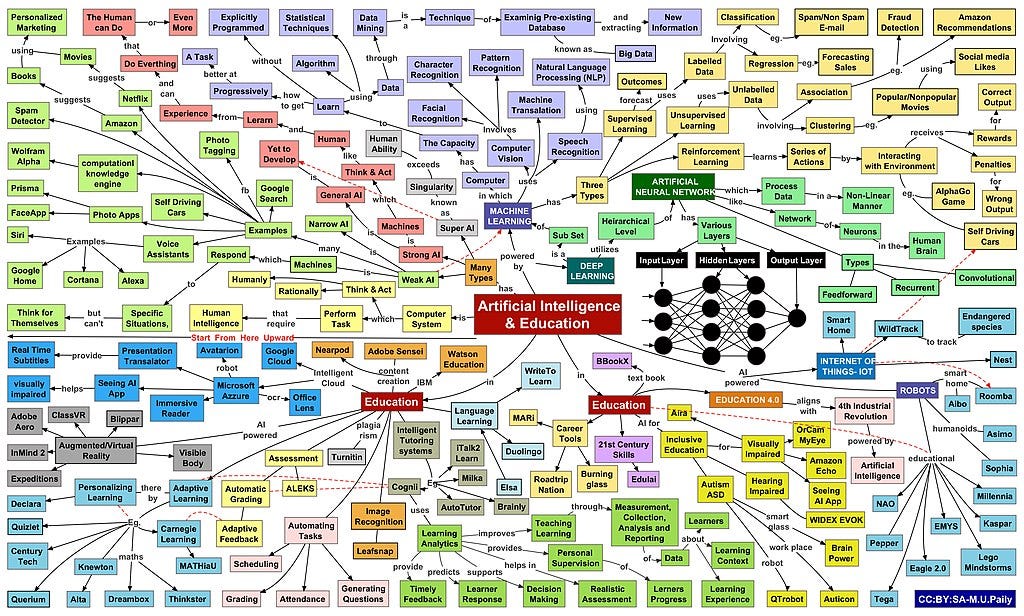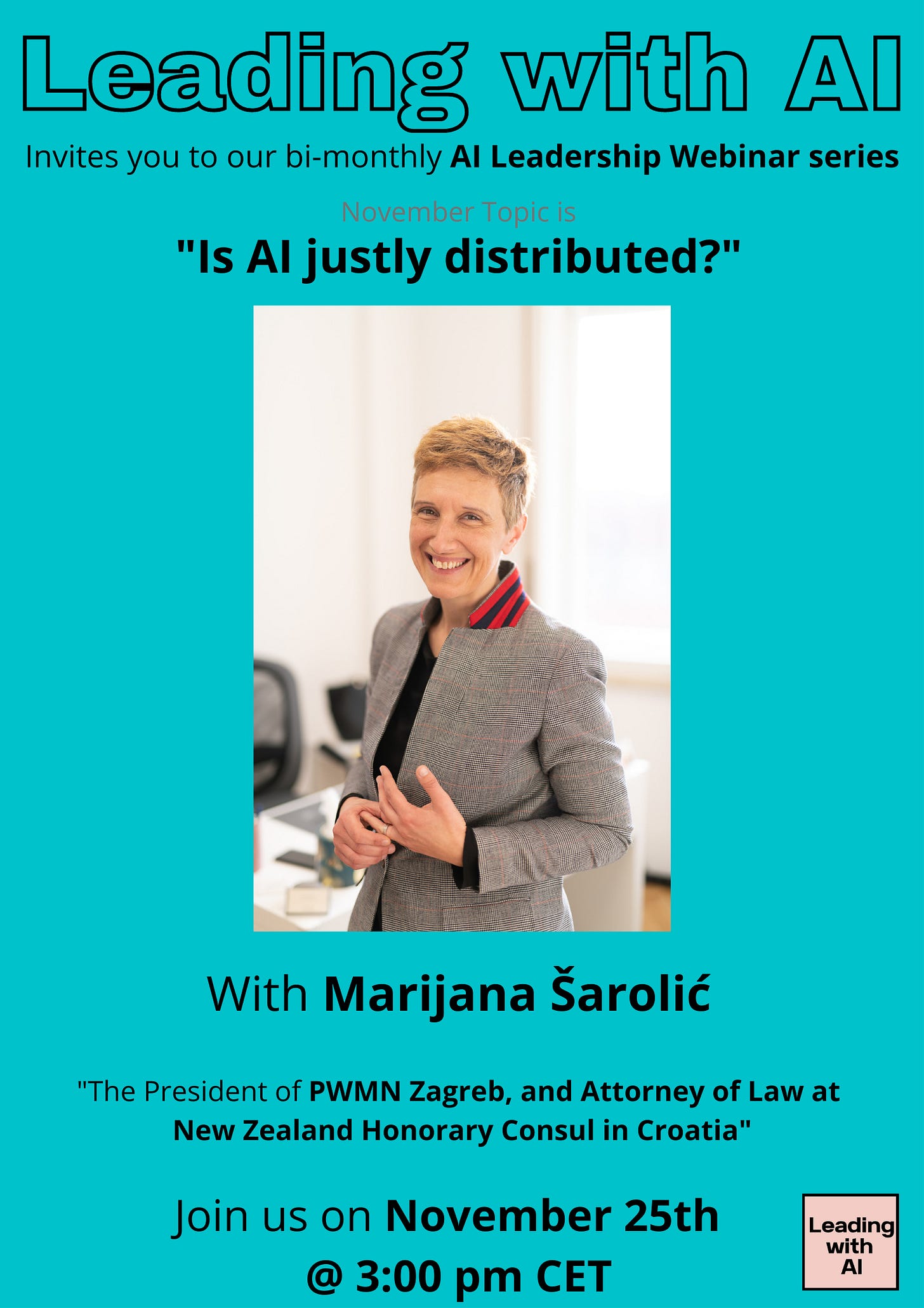The Role of Partnerships in Artificial Intelligence (AI) for Education and Training
By Sylvia Mukasa*
This article centres on the roles of different players in supporting the use of artificial intelligence (AI) in education and training; What partnerships can be formed to improve the availability and use of AI for education and training? What are examples of multi-sectoral partnerships and their goals aimed at enhancing or leveraging AI in the sector ? Which benefits derive from partnerships? And finally, what are recommendations for meaningful partnerships?
The term “skills gap” describes a fundamental mismatch between the skills that employers rely upon in their employees, and the skills that job seekers possess. This mismatch makes it difficult for individuals to find jobs and for employers to find appropriately trained workers.
In the Harvard Business School series “Managing the Future of Work,” Joseph Fuller argues that business leaders must champion an employer-led skills development system to source and create robust talent pipelines, which requires cross-sector collaboration between government, education, and business.
In July 2021, at the High-level Policy Forum organised by the Association for the Development of Education in Africa alongside development partners, ministers of African countries spoke of the challenges their Technical and Vocational Education and Training (TVET) systems experience, including mismatches between graduates’ skills and the labour market needs. From the key takeaways, it emerged that educational technology (EdTech) can offer new ways to customise the learning experience, allowing developing countries to integrate world-class training content and to enhance skills recognition and transferability across markets. Another takeaway was the need for partnerships, especially private sector engagement, in helping individuals acquire relevant skills.
Partnerships to improve the availability and use of AI for education and training
According to eLearning Industry, 47% of learning management tools will be enabled with AI capabilities in the next three years. Machine Learning (ML) and AI are key drivers of growth and innovation across all industries, including the education sector. AI is and will continue to bring new opportunities for enhanced learning, new forms of learning and offer more flexible lifelong learning pathways. The COVID-19 pandemic also accelerated some of these changes, forcing educators to rely on technology for virtual learning; 86% of educators now say technology should be a core part of education. These emerging trends call for the education sector to partner with EdTech providers to address the learning environment, policy, and societal challenges.
Other partnerships are aimed at, but not limited to:
a) Developing new digital skill learning programmes on scaling up AI skills.
b) Partnerships in AI education that can accelerate achieving Sustainable Development Goal (SDG) 4 (Quality Education) and other SDGs.
c) Helping institutions and governments launch broad national or regional education, empowerment, and innovation initiatives to: educate teachers and students; launch digital learning platforms; initialise empowerment programmes for young entrepreneurs and start-up teams; promote local innovation initiatives, talent, and start-up competitions; and inform policy formulation.
Partnerships to enhance or leverage the use of AI in education and training and their goals
Rapid deployment of advanced technologies such as cloud computing, automation, and AI means that to enter the current workforce, a new set of skills is required. With this in mind, Ericsson and UNESCO have combined their respective strengths to educate and create opportunities to scale up AI skill development for young people and to meet the global SDGs.
Their AI for youth initiative seeks to:
i. Develop and manage a repository of AI and other key digital skill training courses that will be available globally
ii. Build capacities of master trainers from selected countries around the globe with advanced knowledge of AI skill development.
iii. Support master trainers to mobilize AI hub centres and hackathons to train young people on developing AI applications.
Mobile Learning Week (MLW) is another UNESCO collaborative initiative that focuses on the evolving dynamics between AI and education.
However, it is important to recognise that the examples above are not exhaustive. There are other partnerships between government, industry, academia, and others to enhance or leverage the use of AI in education and training.
Benefits of partnerships to policy makers and other stakeholders
Rapid technological advancements inevitably bring multiple risks and challenges, which often outpace policy debates and regulatory frameworks. UNESCO, through its AI readiness self-assessment framework, is committed to supporting member states to harness the potential of AI technologies for achieving the Education 2030 Agenda at a national level, while ensuring that the application of AI in educational contexts is guided by the core principles of inclusion and equity. The UNESCO guide for policymakers in AI and Education aids policymakers in understanding AI and responding to the challenges and opportunities in education presented by AI. It introduces the essentials of AI such as its definition, techniques, technologies, capacities, and limitations. It also delineates the emerging practices and benefit-risk assessment on leveraging AI to enhance education and learning. This project is implemented by UNESCO in partnership with Microsoft, the Weidong Group, TAL Education Group, and is open to a multi-stakeholder partnership approach.
Recommendations for meaningful partnerships
Governments should invest in improving the quality of education for all, to lay the foundation for integrating AI into the economy more seamlessly. It is a critical to ensure that existing imbalances in general and technology-specific skills do not continue to act as barriers for disadvantaged populations to join the AI workforce. Countries should also not expect the private sector to drive their national development agendas.
In developing countries, attempts to establish a trained workforce for successful AI deployment should be approached with care to prevent exacerbating social inequalities. While rapid skills development can produce short-term boosts in AI skills in the long-term, the result might be a work-ready, but narrowly skilled workforce with primarily entry-level job skills. In contrast, the slower formal education system route may produce less work-ready graduates, but with a broader knowledge base, better critical thinking, and readiness for management level positions.
In conclusion, AI has the power to optimise both learning and teaching, to the benefit of both students and teachers. However, effective EdTech approaches cannot flourish without partnerships between public and private sector and without an enabling environment that includes digital infrastructure and digital skills of learners and teachers. Also, besides technical skills, AI governance, ethics and cybersecurity ought to be central components of the curriculum designed from beginner to advanced level. There is a growing need for educators, students, and policymakers to have a basic understanding of AI. This is essential to enable them to not only engage positively, but critically on the ethical implications of AI and data use in education and training.
*Sylvia Mukasa is an award-winning entrepreneur. Sylvia is Founder/CEO of GlobalX Investments Ltd/GlobalX Innovation Labs which focuses on emerging technologies. She is passionate about empowering Women in Tech and contributing to the entrepreneurial ecosystem in Africa and globally. She is Country Co-Founder/Chapter Lead (Kenya) for Women in Tech Africa (WiTA). WiTA won the United Nations EQUALS in Tech Award, Leadership Category in 2018. She is a 2014 TechWomen Fellow, an Initiative of the U.S. Department of State's Bureau of Educational and Cultural Affairs. TechWomen empowers, connects, and supports the next generation of women leaders in STEM from Africa, Central and South Asia, and the Middle East; launched by Hillary Clinton, former US Secretary of State. Sylvia holds a certificate from the GIZ/ITCILO’s Leading with AI Lab. She is a member of the Gender Alliance, the Global Leadership Academy (GLAC) and a BMW Foundation Herbert Quandt Responsible Leader.
Next Event: 25th November @ 15.00 CET
Register here on Eventbrite
Register here on Eventbrite




